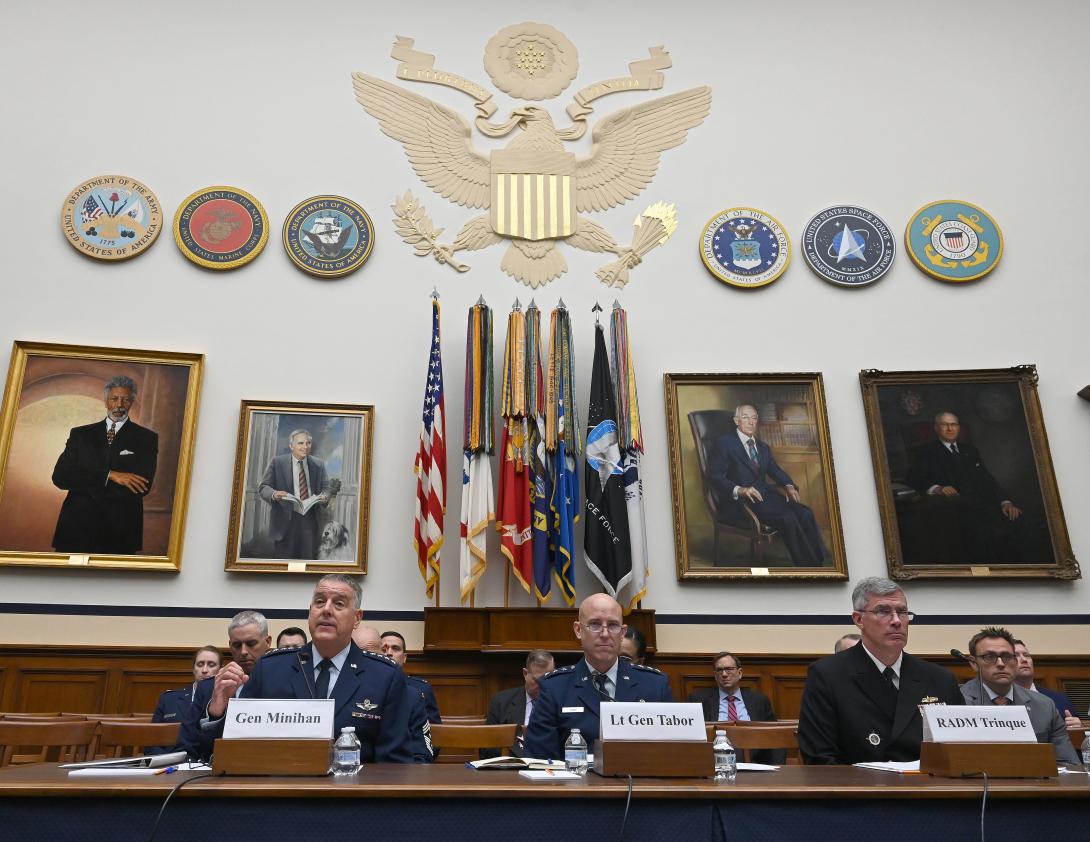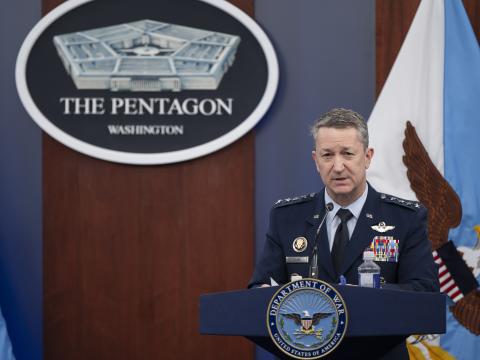Tackle the Crisis Before the Catastrophe
National defense experts urge that decisive preparedness will deter adversaries from turning a crisis into a conflict.
“This is much more dangerous than 9/11, not to minimize anything about 9/11, but we were unprepared, and our response did not really meet the moment,” said Jane Harman, chair of the Commission on the National Defense Strategy, a congressional advisory group.
Members of the Commission on the National Defense Strategy, including former Congresswoman Harman and Ambassador Eric Edelman, spoke at a Defense Writers Group briefing in Washington, D.C., on Tuesday.
The experts called on officials to educate the American public on the international threats the U.S. continues to face. This comes as adversaries across the globe are considered the most dangerous since World War II.
The commission will work to persuade Congress during a Senate hearing this week to create a sense of urgency.
“Maybe we have different leaders in Congress to make sure the public is educated about this moment,” Harman said. “It is not going to be comfortable if there is a major attack, cyber attack on our infrastructure. When the lights go out and the ports close and our transportation systems melt down, people will start to pay attention then, so maybe they can pay attention ahead of that."
As the National Defense Authorization Act for the next fiscal year works its way through Congress, the report writers shared their concerns on ad hoc programs seeking to plug gaps but not changing the system.
They discussed small business programs, like small business innovation research (SBIR) and small business technology transfer, which stimulate small business innovation and collaboration with the U.S. Department of Defense (DoD) and other agencies.
“All of these efforts so far are not at scale, and they're not on the scale of what we are facing in terms of, you know, China has 10 major shipyards. We've got kind of one and a half,” said Edelman, a member of the same commission.
The DoD SBIR budget has hovered around $1 billion, which is invested in research. Over two thirds of those funds go to businesses with 25 employees or fewer, according to the DoD’s Office of Small Business Programs.
Still, the report writers coincided that these sums are insufficient.

When the lights go out and the ports close and our transportation systems melt down, people will start to pay attention.
Comments on the Defense Innovation Unit (DIU) offered a similar view.
“DIU's budget is $1 billion out of $850 billion [total defense budget]," Harman said. "That's a rounding error."
DIU Director Doug Beck told lawmakers that $1 billion can go a long way in a congressional hearing.
“He says he can leverage that up to $50 billion because he's able to bring in private sector funding, etc. Even if it's 50 billion out of 850 billion, that's still a rounding error,” Harman added. She also insisted on the excessive attention on legacy systems to the detriment of platforms that are less expensive and modular for easy updates.
The speakers stressed that there is a need to address aspects of how the United States defends its interests and those of its allies, and both Harman and Edelman agreed that the United States is facing the most alarming threats since the 1940s.
“It's certainly not just DoD; it's all elements of national power, and that is, by my lights, the new definition of security,” Harman told journalists.





Comments